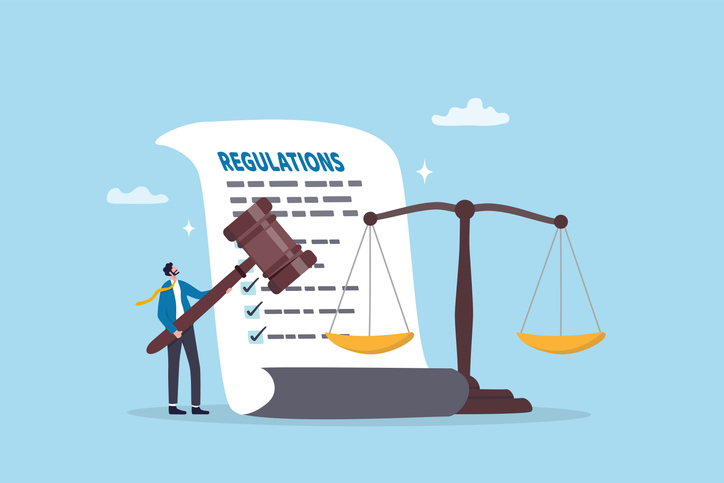A recent YouGov survey confirmed that 79 per cent of participants will check online reviews of a product or service before they click purchase. The research highlights just how powerful online reviews have become and confirms their ‘first port of call’ status for the majority of online shoppers.
Yet despite their elevated position, it is worrying to note that according to the YouGov research, a fifth of those who have submitted a review online admit to never having tried the product or service. Against this backdrop, it is essential that businesses think about how to protect their online reputation and understand when and when not to take action.
As a practical first step, it helps to be aware as soon as any damaging comments appear, so actively monitoring and capturing comments is important. There are a range of tools (from setting up a Google alert to more sophisticated software) that allow you to keep track of what is being said about your brand on social media, review sites, blogs and forums. Once the alert to a damaging comment is received, this evidence should be captured by either printing the page or taking a screen shot.
The law does offer protection against unfair criticism, to the extent that such comments are damaging, misleading and untrue and business owners should be aware of the three main scenarios where the law can assist in protecting their brand.
Defamation
To be considered defamatory a comment must notably lower the individual or the company in the estimation of right thinking members of society. It must also cause or be likely to cause serious harm to an individual or company’s reputation. ‘Serious harm’ in the case of a company means demonstrating actual or likely financial loss, which is a high hurdle. Upon proving such elements, there are also defences that need to be negotiated. For example, a statement cannot be defamatory if it is true, or if it is an honest opinion based on fact. Additionally, the defence of privilege arises in certain situations, such as parliamentary or court proceedings and reports on the same, as a matter of public policy.
Malicious falsehood
In this instance, it must be proved that the statement in question is false, caused financial loss and was published maliciously, in order to be considered for malicious falsehood. This can be difficult to prove and the burden of doing so is on the part of the claimant – unlike in a claim for defamation. Defamation is, therefore, a potentially easier claim to bring. However, defamation is also less well suited to false statements that refer exclusively to a particular product or services, as the law of defamation seeks to protect the reputation of individuals and companies.
Unfair comparative advertising
When an advert identifies a competitor or the goods or services offered by a competitor, comparative advertising arises. The advert must compare goods or services meeting the same needs or intended for the same purpose if it is to be considered lawful. However if the advert is misleading, or takes advantage of or discredits a competitor’s trade mark or name, it will be unlawful.
There is also a further step which can be taken, as a business can make a complaint to the Advertising Standards Authority (ASA), in addition to bringing a claim against the company that published the misleading advertisement. An ASA decision, upon investigation, can lead to a range of advertising sanctions and adverse publicity against the unlawful advertiser. This is in addition to the ASA’s power to make a referral to bodies such as the Office of Fair Trading, who may choose to initiate further action.
Enabling removal of material
It can be very difficult to identify or contact individual posters if they are operating online anonymously or under a pseudonym. In the first instance, consider reviewing any of the website operator’s applicable policies on the site and establish whether there is an online form that can be used to request a takedown of the comment.
It may be possible to contact the author informally via social media. If successful, this may lead to the comments being removed quickly and at little expense. However it should be noted that it is a requirement of the ASA to liaise with a competitor in advance of making an advertising complaint.
Finally there is also a detailed process laid out by the Defamation Act 2013, whereby a website operator is compelled to liaise with the author of a post and obtain contact details of the author if none are available. If they do not follow the process in the Defamation Act 2013, a website operator can become liable for the defamatory comments. However if no dialogue with the author is forthcoming, then the website operator can suspend or disable the offending web page.
Legal proceedings in action
If it is decided that comments are sufficiently damaging, and the statements are not removed, there may be no alternative but to issue proceedings against the author and/or website operator. It is at this step that both sides are likely to start incurring legal expenses and there may be further publicity surrounding the fact that legal action has been taken. Business need to always consider whether the potential of further publicity outweighs the benefits of winning a legal battle. Defamation damages often conjure up images of multi-million pound sums paid to celebrities, yet in practice even if defamatory statements have been published in the national press, the level of damages recoverable may not be as significant as the costs of bringing a claim to court.
Conclusion
To effectively protect your brand from the consequences of false and damaging online reviews, there are a number of clear steps which can be taken. In taking any action a business must think strategically and consider all the potential consequences. Negative publicity can quickly be generated through heavy-handed threats (even if based on perfectly justifiable legal principles), which could end up causing more damage than the original statements.
In each case the most important thing is to clearly bear in mind the overall objectives and follow a firm strategy that fits the damage, and your brand.





